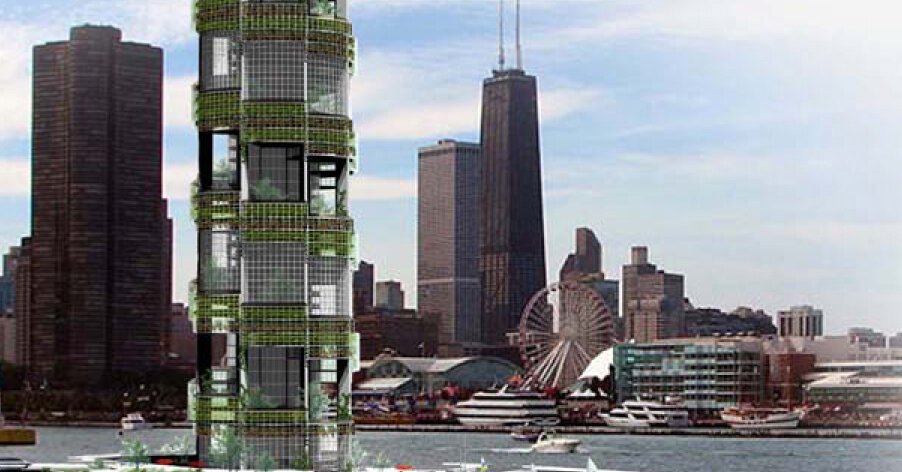A microbiologist, he popularized “vertical farming” — raising crops in tall buildings — to remediate climate change and feed more people.
Dickson Despommier, a microbiologist who proposed that cities should grow food in high-rises, popularizing the term “vertical farming” — an idea that crossed over from the realm of the purely fanciful to become a reality around the globe — died on Feb. 7 in Manhattan. He was 84.
His wife, Marlene Bloom, confirmed the death, in a hospital. He lived in Fort Lee, N.J.
Dr. Despommier (pronounced des-POM-ee-yay), who was a professor for 38 years at Columbia’s School of Public Health, specialized in parasitic diseases, but he gained far wider influence as a guru of vertical farming.
In 2001, he and students in a medical ecology class designed a 30-story building that theoretically could grow food for 50,000 people. Some 100 varieties of fruits and vegetables would be grown on upper floors, with chickens housed lower down. Fish would feed on plant waste.
Dr. Despommier argued that vertical farms would use 70 to 90 percent less water than traditional farms, allowing agricultural land to return to a natural state and helping to remediate climate change. He evangelized at TEDx talks and in a book, “The Vertical Farm: Feeding the World in the 21st Century.”
“When my book came out, in 2010, there were no functioning vertical farms that I was aware of,” he told The New Yorker several years later. “By the time I published a revised edition in 2011, vertical farms had been built in England, Holland, Japan and Korea.”
